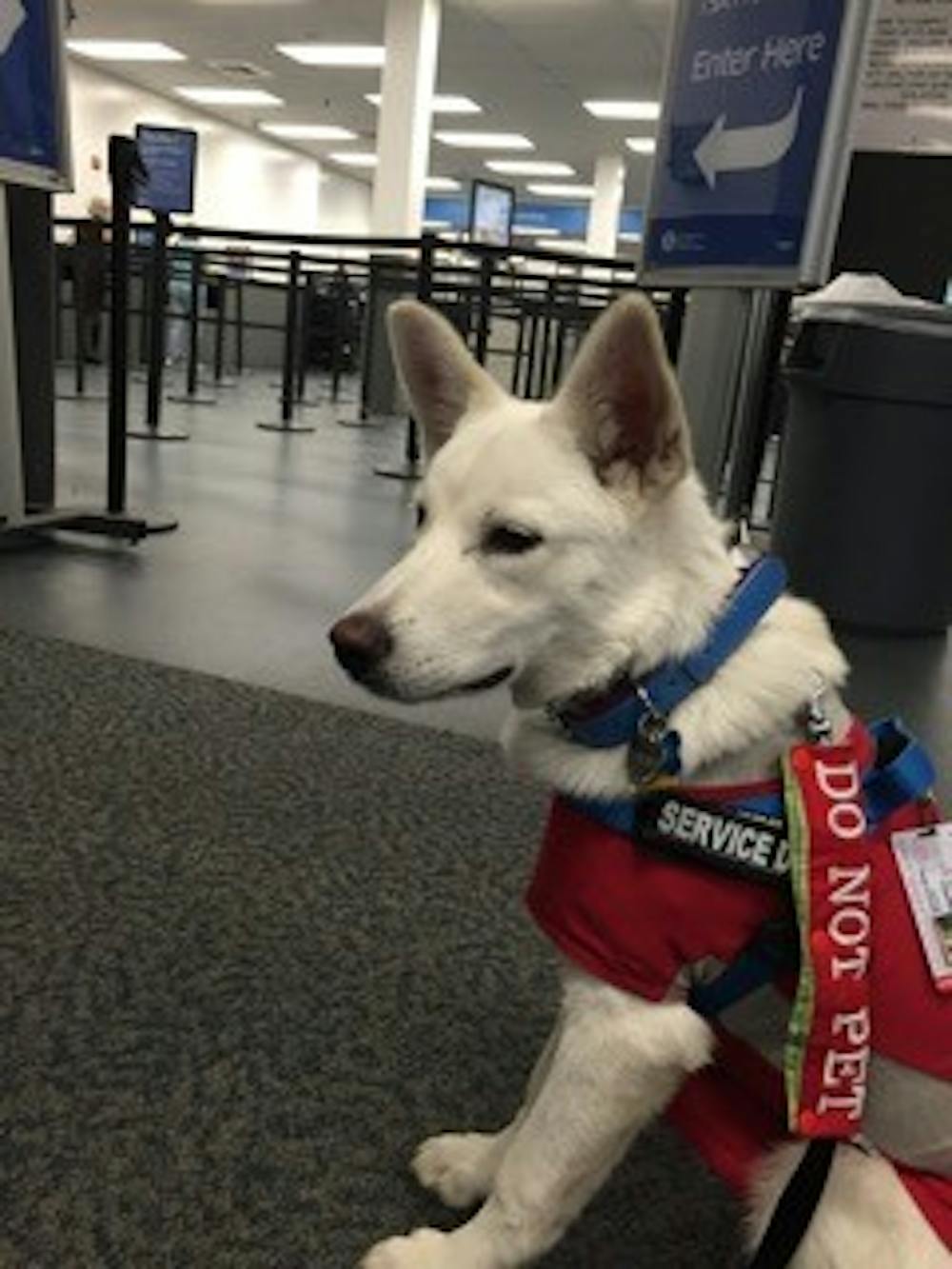“You never know what sort of situation someone is in,” said Laura Carroll, a survivor of sexual assault. “You have to be aware that there is no way to look disabled.”
Carroll, who suffers from post-traumatic stress disorder and depression after she was sexually assaulted at UNC, took time off from school to seek treatment. She returned to UNC this semester with the help of her five-month-old service dog, Jayden.
During her time off, Carroll’s parents helped her manage her symptoms, and she worked with a therapist to become more independent. As she prepared to return to school, she worried about being on her own. Her therapist prescribed a psychiatric service dog.
Carroll said service dogs can provide many support options if trained properly. For those suffering from panic attacks, service dogs can sit on their owner’s chest to calm their breathing. The dog can detect a panic attack before a seizure occurs. The dogs can also be trained to fetch medication or call for help on special phones if their owner is unable to.
“With my depression, it can be hard to regulate my sleep cycle,” Carroll said. “I can ignore alarms, but it’s a bit harder to ignore a dog licking your face. You can’t really hit the snooze button on a dog.”
Carroll’s PTSD causes her to become anxious around crowds. She has trained Jayden to stand behind her to guard her personal space and nudge her if someone comes too close.
Andrea Pino, who graduated from UNC in May, adopted a white German Shepherd puppy named Korra to help her cope with the effects of her sexual assault.



